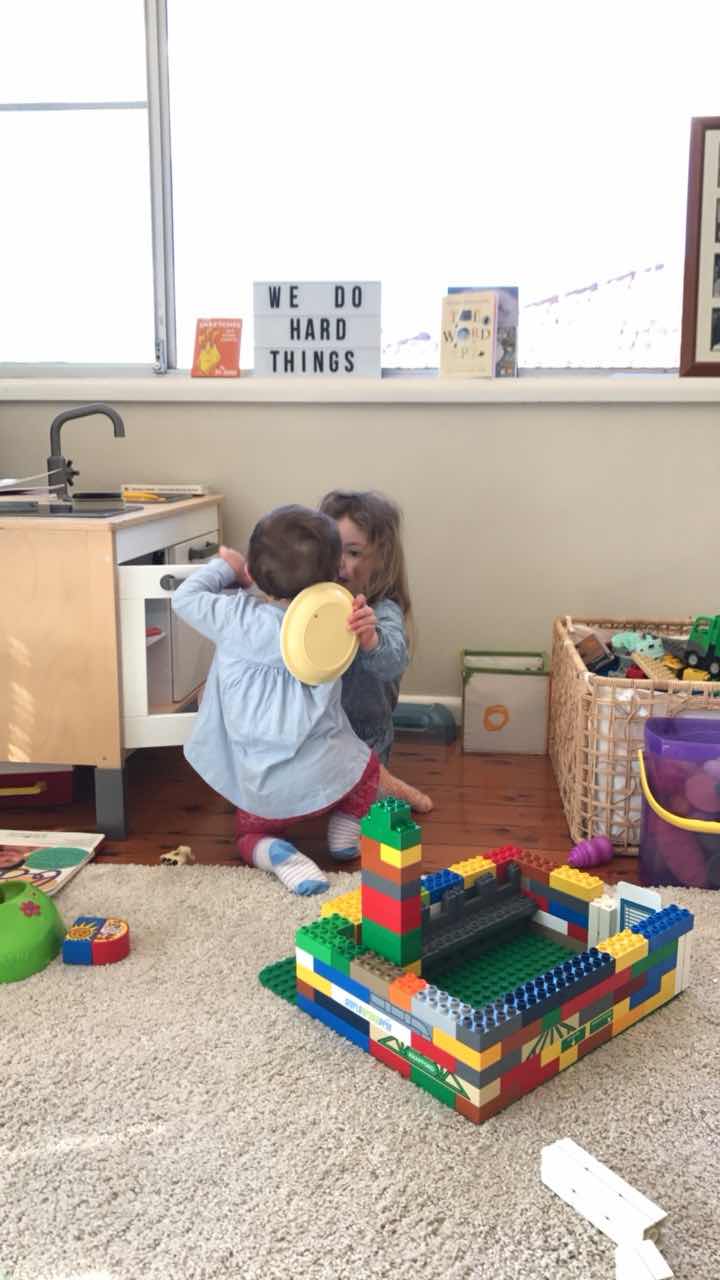 Reader question: How do you stop kids making mess or how do you deal with the mess?!
Reader question: How do you stop kids making mess or how do you deal with the mess?!
I’ve got to say I’m asked this ALL the time. I’m going to start by saying that even if you could stop children being messy, I wouldn’t recommend it. It’s such a good learning experience. Yes the obvious things like fine motor skill development are developed, but also the life skill that mess must be cleaned up is gained. Even if they are just watching you ‘model’ this behaviour now, it’s all being stored away in their brains for the future.
So exactly how do I cope with 6 mess makers????
1) OUTSIDE TIME!! Every day. I am not precious about our back yard. You will rarely see photos. They destroy it and I don’t care, because I need to maintain sanity. There has to be a time they feel free to just be who they are without all the rules. So while they are outside enjoying a play experience that is both sensory and potentially great for gross motor muscles (ie. playing outside without constant monitoring), I get a couple chores done, or clean up an inside activity. I just expect them to be kind and not break the BBQ. Note: I have older kids. When I had younger kids our back room was allllll windows and I could see everywhere in the back yard. The back room was also our tiny playroom, so I’d tidy and keep an eye on them while they played in mud and made cubby houses out of bikes and sticks. It was gold!
 2) Handheld vacuum. Love my little Dyson. Hubby wants it to break so we can upgrade to the latest one.😆We use it all the time and all except Libby can use it. We also have a broom and little dust pan and broom so there are plenty of implements to choose from. We also have child friendly, non toxic cleaning products and clothes that they are welcome to (and encouraged to) use.
2) Handheld vacuum. Love my little Dyson. Hubby wants it to break so we can upgrade to the latest one.😆We use it all the time and all except Libby can use it. We also have a broom and little dust pan and broom so there are plenty of implements to choose from. We also have child friendly, non toxic cleaning products and clothes that they are welcome to (and encouraged to) use.
3) Spread out a spare sheet and place the play tray in the middle. It’s normal for kids to pick up the rice and dump it somewhere, so I put a few plates around too. Most of it stays on the plates or sheet, which gets poured back in the bag at the end. 5 mins clean up, including the vacuum around the edges.
4) If I don’t feel like getting out the vacuum, I put a picnic mat on the grass outside. No mess inside. I won’t make a stressful day more stressful unnecessarily.
5) Clean up toys only once or twice a day as part of the regular rhythm of the day. Ignore it the rest of the time. Leave the toys everywhere! You’ll find they will come back and build on previous play after having a bit of thinking time. Insist that they at least help while you are packing up at the routine time/s. If they complain, be honest: “I don’t like packing away either. Let’s start with the Duplo first.” Arguments are never truely won, so it’s easier being on the same team. Team we-have-to-do-it-anyway.
6) Don’t expect others to care about the mess just because you do. You can’t control children to value tidiness. Some do, some don’t, and hopefully they will value it more as they grow, watching you. In the meantime, be clear about expectations.
 7) Do whatever works for your family. In the past I’ve had children overwhelmed with packing away toys, because it’s too hard for them to NOT play. With these children I reached an agreement they they would clean the bathroom vanity or fold towels, while I packed away toys.
7) Do whatever works for your family. In the past I’ve had children overwhelmed with packing away toys, because it’s too hard for them to NOT play. With these children I reached an agreement they they would clean the bathroom vanity or fold towels, while I packed away toys.
8) Some people have had success with making cleaning fun. Not our family, but some people. Maybe I'm just not a great actress. It's worth giving it a go!
9) Have the routine clean up right before something they absolutely LOVE doing. For example, in Prep we clean up as a class right before we go outside to play. They are super excited, thinking about what is coming next, so they are more eager to pack away quickly. At home it is usually before food. I have no children who are not in love with eating, so this works.
10) Pass on or throw away items that are unnecessary. A cluttered space is much harder for all involved to maintain. If everything has a space that it belongs, it makes the whole process easier.